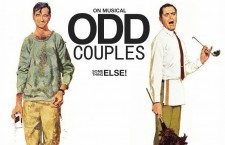I think I finally understood David Bowie sometime around Christmas 2019.
Before I get all kinds of online strangers telling me the errors of my ways, let me just say my friends and associates have been telling me about the genius of Bowie for years, even decades. In my defense, I’ve always been able to appreciate his importance, but acknowledging something isn’t the same thing as liking it.
When it comes to something as subjective as rock ‘n’ roll, I’ve always been of the opinion “You like what you like,” and sometimes there’s just no way arguing around that.
So, because everyone’s experience is different yet valid, I thought I’d just outline how my underwhelming disregard for David Bowie came about. I’m not trying to justify a position here, but hindsight being 20/20 and all that, I can say this is probably how it developed.
BOWIE vs. NASA: In its entry on “Space Oddity,” Wikipedia states: “The [1969] release was timed by the record company to align with the moon landing, and so Bowie was considered for a time a novelty act, especially since he would not have another hit for three years.” It didn’t help that the song wasn’t well known in North America until it was reissued in 1973, making David Bowie look like a Johnny-come-lately, as well. As far as I was concerned, Bowie’s beginnings as a mainstream pop artist violated my own personal, but as then unconsolidated understanding of the two biggest cardinal sins of rock ‘n’ roll: 1) trying too hard to be relevant or cool; and 2) bad timing.
Besides, whatever fate befell Major Tom, floating in his tin can as it were, couldn’t be as bad as what happened to the space traveller in “The Rocket Man,” a short story by sci-fi great Ray Bradbury in 1951. A wife and son, reflecting on their husband and father risking his life in space, consider how bad it would be to go out after dark when a planet on which he had crashed rose in the night sky. Unfortunately for them, his ship fell into the sun. And as far as I know, Ray Bradbury never, ever tried too hard to be cool.
BOWIE VS. MOTT: Again, the timing is crucial. In 1975, I became smitten with Mott the Hoople, and went about tracking down every record and 8-track tape of theirs I could find. Yes, I found David Bowie’s “All the Young Dudes” and saw his production credit on the album of the same name, but I had just assimilated a lot of classic Hoople at the same time: “Walking With a Mountain,” “Death May Be Your Santa Claus,” “Marionette,” I Wish I Was Your Mother,” “One of the Boys,” and so on. Compared to that list of tracks, “All the Young Dudes” was OK as album filler and not much else. Of course, the whole “Bowie saved Mott” mantra in circulation at the time wasn’t that impressive either, as by 1975 Mott had broken up anyway.
ZIGGY VS. IGGY: Regarding Iggy Pop and the Stooges, CREEM magazine editor Lester Bangs once said, “All Heavy Metal was and is farina next to them.” But the first Iggy album I ever heard was The Idiot, which was produced by David Bowie. It was a kind of cool album, but not heavy metal or even rock ‘n’ roll as I knew it. Funhouse turned out to be great, so I was hoping Raw Power would live up to its name when I finally got around to hearing it. As it turned out, Bowie’s production of Raw Power was so shrill and thin that supposedly Iggy said, “That carrot top ruined my record!” Fearful of a third disappointment, for years I avoided Lust for Life, yet another Bowie/Iggy collaboration.
BOWIE VS. LOU: As a subset of artists I didn’t get, you can add Lou Reed to the mix, although I very much liked the Velvet Underground from the start. All of their releases are classics, but the first I heard of Lou Reed as a solo act was the David Bowie-produced “Walk On the Wild Side,” which despite its lyrical content, sounds pretty much like a doo wop send up with strings and a smooth jazz sax solo at the end. Whatever happened to “Sister Ray” and all that other white light/white heat?
BOWIE VS. CHANGES: Okay, so it should always be about the music, and a greatest-hits album is sometimes the place to start. Changesonebowie was Bowie’s first hits compilation, and I did like about half of it, but where were any of the songs from The Man Who Sold the World, an early release featuring Mick Ronson on electric guitar, one of the most underrated players in the history of ’70s rock? Who picks these tracks anyway?
While I’m thinking about it, let me just say David Bowie’s whole gender ambivalence was never an issue: Again, it was always been about being seen as trying too hard to impress. For comparison: Elton John dressed up as well, but he was also a great songwriter and helluva pianna player: Bowie seemed to have a lot of hairspray and makeup and outfits, but with the acoustic guitar occasionally around his neck, he ended up looking a bit like Elvis – who himself often carried a prop guitar and perhaps was not to be taken seriously as a musician. Or: the New York Dolls, who dressed like women, but were obviously too ugly to be trying hard enough, and played kick ass rock ‘n’ roll as if to prove just how much they didn’t care.
As the rest of his career progressed, I made my peace with David Bowie, even when he went on to perform with such diverse artists as Klaus Nomi, Mick Jagger, and, uh, Bing Crosby. And though I didn’t keep up with his later work, I came to believe he really was very musical with interesting ideas. He also seemed to be a genuinely nice guy, perceptive about his career and his place in music history, yet also willing to have a good laugh at the craziness of it all.
So, getting back to just a couple of weeks ago, I thought I ought to give David Bowie another deep listen. First, I realized a more accurate phrasing of “You like what you like” is actually “You like what you like when you’re ready for it.” I think for me the problem was always that I saw Bowie primarily as a “pop” star (i.e., one who plays popular music for a relatively unengaged audience) when in reality, he always had a lot more in common with the rock musicians of his era.
Rock music in many ways doesn’t allow you to remain unengaged; it forces the listener to take a stand on the nature of Art and what it might mean in context to oneself individually or as an audience. And in that sense, it’s easy to see how Bowie challenged everyone in terms of both his stage presentation as well as his music.
Taken from that perspective, I also came to a second, and maybe more important conclusion. David Bowie never tried too hard to be relevant or cool: He simply was always on the cutting edge and incredibly hip as well. And when you’ve reached that level of cool, there’s no such thing as bad timing either, because timing becomes something that you can dictate on your own terms.
And hey, I just realized that the day I wrote this, Jan. 8, 2020, was his birthday, as well. He would have been 73, and probably never too old to rock and roll. So, here’s hoping you’re having a happy one, Ziggy Stardust/Major Tom/Aladdin Sane, wherever you are on the space/time continuum.
- How David Bowie’s ‘The Next Day’ Stripped Away All of the Artifice - March 15, 2023
- Why Deep Purple’s ‘Who Do We Think We Are?’ Deserves Another Listen - January 11, 2023
- In Defense of the Often-Overlooked Mott the Hoople - November 10, 2022




